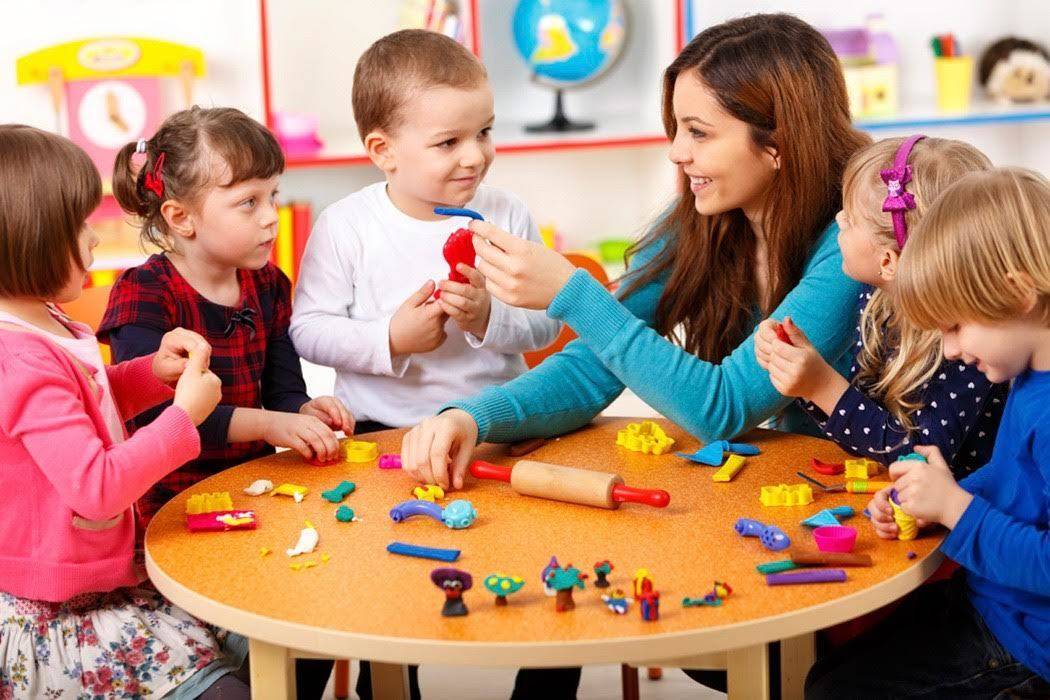Imitation is your young child’s way of learning how to interact with others and behave in the world she lives in. She watches your behavior, and you’ve probably been surprised to hear phrases come out of her mouth that only you say, or similar gestures or preferences. Developmental psychologists have always emphasized the fact that children model their behavior after their parents’ and caregivers’ behavior. This is a great opportunity for you to exhibit positive behaviors for your child. If you’ve seen your daycare or preschool teachers in action, you may have picked up a few tips! Most childcare providers find that modeling positive behavior is second nature.
Even on their toughest days, in the most challenging of scenarios, childcare providers show respect to the children they care for. They make a point to show each child that they are listening to their concerns, and that they understand their desires and motivations. This may not always mean that a child gets what he wants in the end, but he will have the sense that his caregiver respects his feelings, and he’ll make an effort as he gets older to listen to others, feel empathy for them, and show them respect. Preschool and daycare teachers also make a point to acknowledge their mistakes. If an apology is in order, it is offered. This teaches kids that making a mistake is OK, that it happens to everyone, and that the important thing is to acknowledge mistakes and apologize and make things right if possible.
Teachers also help their students to understand basic concepts, solve problems, and make mental connections each day. They often do this by modeling their own thought processes and talking out those thought processes aloud in order to model problem solving behaviors. This helps kids to understand how adults reason out problems, take logical approaches to producing results, and also helps children develop their critical thinking and problem solving skills.
And kids love it when their teachers open up a bit about their lives, talking about the positive behaviors they engage in on a regular basis, whether it’s a hobby or special interest, or even a sweet story about their own family life. If a childcare provider happens to mention that she loves to swim and is training for a triathlon for a cause, that will inspire athletically inclined kids to pursue their interests, and will also plant the seed that getting active in order to help others is a positive thing to do. When a teacher mentions a way in which she helped out a friend or a family member in need, that teaches kids about helping behaviors and how they can be applied in real life. Kids need role models, and often look up to the caregivers they see each day.
Many parents model positive behaviors regularly, as well. To add to your repertoire of techniques, watch your childcare providers at work, as they employ a multitude of strategies that are intended to help young children learn from positive behavior and imitate the good they see in their caregivers, whether teachers or parents.

